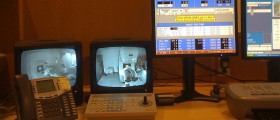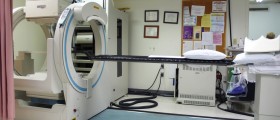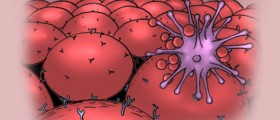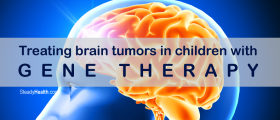
Radiation therapy is only one treatment modality used in battle against some types of cancer. It may be used alone or in a combination with chemotherapy. Cancer cells grow and develop rapidly and the goal of radiation therapy is to destroy them. Radiation therapy used in treatment of cancers is in a form of different sources including X-rays, Gamma rays and particle beams of electrons, protons and neutrons.
Types of Radiation Therapy
External radiation therapy includes treatment in which the radiation originates from the external source (a machine). The machine generates specific radiation and it is then delivered to the very site of the tumor.
Internal radiation, also known as brachytherapy includes placement of radioactive sources inside the body's cavities or placement of radioactive sources such as radioactive capsules or tubes directly into the tumor.
Systemic radiation therapy is a treatment in which the patient is injected with a radioactive substance. The particular substance travels through the body and delivers radiation to specific cells that tend to bond with the radioactive substance.
And finally, intraoperative radiation therapy is a type of radiation therapy delivered to a patient during a surgical procedure.More about Radiation Therapy
This particular treatment modality is generally performed in more than one session. The actual number of sessions and a single daily dose of radiation that is delivered to a patient depends on the type of the tumor (pathohistological characteristics), the site of the tumor, whether the tumor has been removed or it is currently found in the body and general health of the patient.
Each and every patient undergoes specific preparation for the treatment and has its own radiation therapy plan. The goal of the treatment is to deliver the planned amount of radiation to the very site of the tumor and to spare the surrounding tissues from radiation as much as possible.
Side Effects of Radiation Therapy
Even though radiation therapy is highly effective against certain types of tumors it also carries some risks and side effects.
All patients who undergo radiation therapy generally complain about fatigue. Hair loss typically affect patients who receive radiation therapy of the head and the brain. In some cases there is a chance of skin irritation and inflammation. This leads to temporary cease in treatment.
Radiation therapy of the head and neck commonly causes dry mouth, swallowing difficulties, sore throat, ear ache, nausea, sore jaw and changes in the taste of food.
Radiation therapy of the pelvic area may cause diarrhea, frequent urination, sexual dysfunction and bladder irritation or inflammation. In case the person undergoes radiation of the abdomen (rarely performed) he/she may suffer from nausea, upset stomach and diarrhea.
Radiation therapy of the chest cavity typically leads to cough, shortness of breath and sometimes has serious effects on the heart.

















Your thoughts on this
Loading...